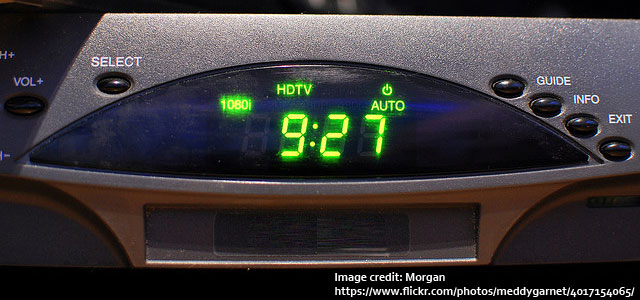Cable companies have some of the lowest customer satisfaction ratings of any large companies in the US. Probably the world, if anybody bothered to check. We're not even talking bottom 20%. Time Warner, Comcast and their friends rank at the very bottom of a very long list. So to me, at least, it seems like giving them the keys to my house, my car, my utilities and all sorts of personal property seems like a very bad idea. Like really, catastrophically bad.

Despite this, at least one cable industry technology provider thinks this is exactly what we should do. Alticast, a maker of software for set top boxes and content security, has proposed that we use cable boxes -- admittedly something that tens of millions of people already have in their homes -- as IoT routers. In a whitepaper they published on the subject, they paint a picture of the cable box not only managing your DVR schedule and satisfying your binge watching needs, but also controlling your home lighting, electronic locks, and other devices that have been smartened up and connected to the cloud.
Yes, there are some potentially compelling reasons to make the near-ubiquitous cable box an in-home hub. Chief among them is that ubiquity itself, and the familiarity that comes along with it. Virtually everybody understands the purpose of a cable box, and is comfortable troubleshooting it when something bad happens. Further, because it controls a major source of in-home entertainment, outages are usually quickly discovered and dealt with (on the customer's side, at least). And of course the boxes are already hooked up to the network, eliminating one of the more painful steps that today's IoT hub makers have to deal with when developing equipment for the consumer market.
The devices themselves are becoming more capable too, with many already sporting general purpose CPUs that can play games, do some limited web browsing, and would have plenty of "oomph" to route traffic from even a large number of in-home smart devices.
Still, there are plenty of reasons why this is also a terrible, terrible idea. Chief among them is the fact (not opinion) that most people really dislike their cable providers, so giving them even more intrusive control over everything from lighting to security doesn't make a ton of sense. The potential for service disruption issues abounds too. Who's responsible for supporting a user who has some portion of their smart appliances and devices stop working? Who will troubleshoot a connection between a device and it's back-end cloud host? And will those hosts have to make independent deals with each cable carrier to make sure their devices are certified, leaving out smaller companines and innovators? We can even raise some net neutrality issues. If cable carriers continue to be treated as Title 2 service providers, will new CLEC-style companies start popping up to run their own service (and maybe supply their own boxes) over an incumbent carrier's infrastructure?
Given all of the above, I'd be surprised if the cable industry didn't jump on the IoT bandwagon. Cord cutting is a real thing now, and many of the biggest carriers are already starting to see cable subscriptions decline even as internet service subscriptions increase. Looking for new ways to utilize all of the expensive and already-installed infrastructure just makes sense. But as a potential user of such services, I wouldn't want to touch this arrangement with a ten foot pole.

 Subscribe to the M2M Insider RSS feed
Subscribe to the M2M Insider RSS feed